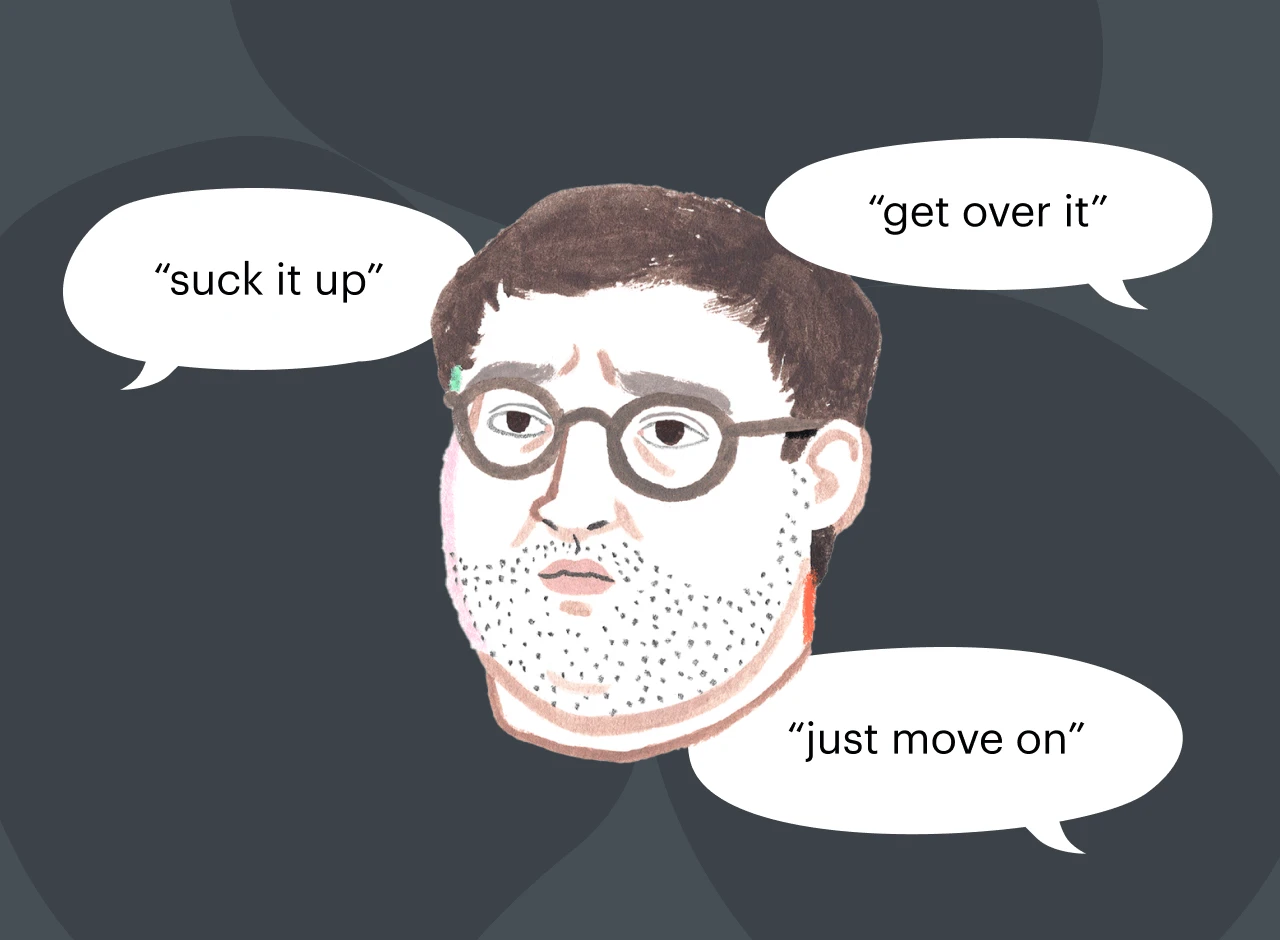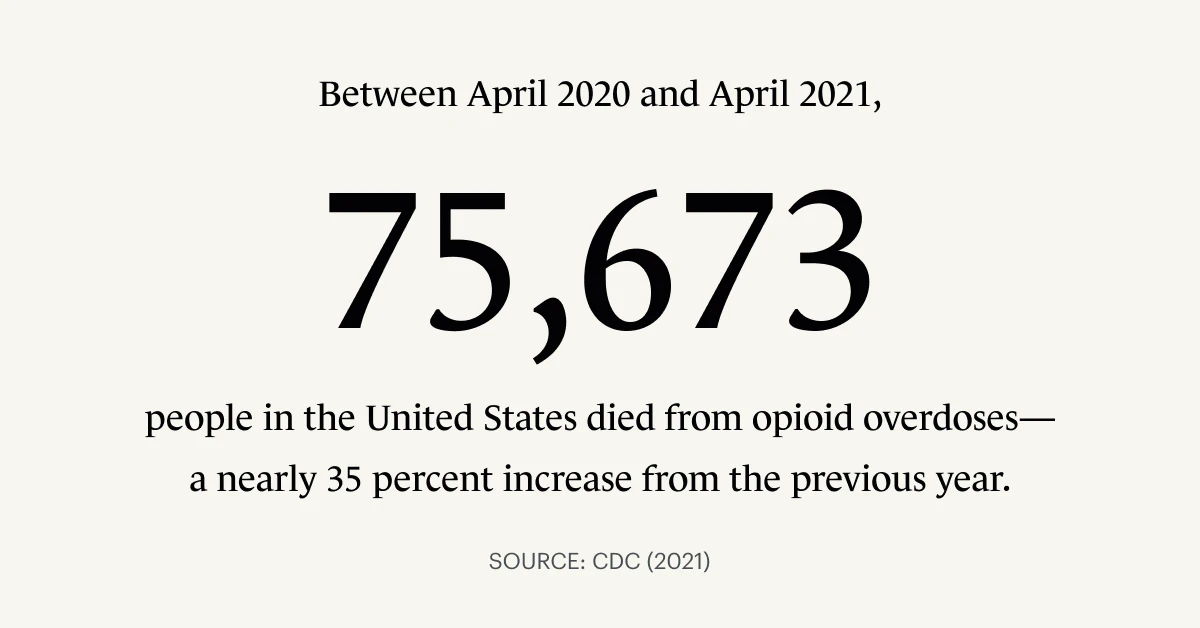Watching videos of TED Talks can be a remarkable (and free!) source of knowledge about almost any and every topic you can imagine—and there are even numerous popular mental health and therapy TED Talks.
Created to provide an accessible way to inform and educate worldwide audiences, TED Talks are a platform for scientists, researchers, technologists, artists, leaders, and other global experts to share their insights and “Ideas Worth Spreading.”
On the TED stage in front of a live audience and in TED Talk videos shared on YouTube and TED.com, dynamic and diverse speakers share innovative research and new information.
Since there is so much we can all learn from mental health and therapy TED Talks, we've gathered 19 of the top TED Talks on mental wellness and counseling to inspire and inform you.
Whether you’re looking to learn something new about emotional and behavioral health, you're seeking to find inspiration in someone else’s story, or you're hoping to get ideas, insight, and guidance on your own counseling journey, we may have exactly what you're searching for.
These 19 mental health TED Talks will connect you with some of the most compelling ideas from key thinkers, researchers, and speakers on mental health, therapy, and emotional wellness.
4 thoughtful therapy TED Talks
1. Emily Anhalt, Psy.D., Why We Should All Try Therapy (more than 200,000 views)
Many people only consider therapy when they’re in a crisis. For example, they’re depressed, their marriage is falling apart, or something about their life just feels off.
In her TED Talk, clinical psychologist Emily Anhalt argues that therapy isn’t just a tool for when things aren’t going well—it can actually be a helpful tool for when things are going great.
Anhalt shares her experience and perspective, both as a therapist and a patient, and makes the case for how therapy isn’t just a short-term strategy for navigating a crisis or challenge—but instead, can be a long-term support for living your happiest, most authentic life.

2. Sangdu Delle, There’s No Shame In Taking Care Of Your Mental Health (more than 2.7 million views)
While the dialogue around mental health is changing, there is still a persistent belief system that equates mental health struggles with weakness.
And, while that can be true in any situation, it’s particularly true for men. As such, many men put off taking care of their mental health and struggle with getting support because of the misguided belief that they should “suck it up,” “get over it,” or “just move on.”

In his Ted Talk on mental health, entrepreneur, clean water activist, and TED fellow Sangu Delle details the shame he experienced around his struggles with stress and anxiety, how that shame and stigma (particularly in his African culture) prevented him from getting help, and how he ultimately learned how to overcome that shame and take care of his mental health—along words of wisdom for other men struggling to get the support they need.
3. Peta Stapleton, Ph.D., Is Therapy Facing a Revolution? (more than 82,000 views)
When you think of therapy, what comes to mind? Chances are, it’s a therapist and a patient sitting across from each other, talking about whatever the person may be struggling with.
But not all therapy is talk-based, and in her Ted Talk, Peta Stapleton, Ph.D., outlines one therapy that she claims can not only help you better navigate mental health challenges, but also improve your immune system, lower your cortisol levels (aka the stress hormone), and even change your DNA expression—Emotional Freedom Technique (EFT).
In her talk, Stapleton outlines EFT (also known as “tapping”), a therapy that involves stimulating different acupuncture points on the body—and why EFT has the potential to completely revolutionize the practice of therapy and treat everything from chronic pain to PTSD to anxiety.
4. Rick Doblin, Ph.D., The Future of Psychedelic-Assisted Psychotherapy (more than 4 million views)
Psychedelics like psilocybin, LSD, and MDMA have long been considered dangerous drugs—at least in the eyes of the United States government. (Under the Controlled Substances Act, all three are currently classified as Schedule I substances, defined as having a high potential for abuse and no legitimate medical purpose.)
But researchers have long argued that when used correctly, at the right dose, in the right setting, and with the right supervision, psychedelics are not harmful—and in fact, they could dramatically improve the way we treat a variety of mental health-related issues.
In this mental health Ted Talk, leveraging his 30+ years spent researching psychedelics and mental health, researcher Rick Doblin explains how LSD, psilocybin, and MDMA impact the brain, and how incorporating psychedelics into psychotherapy could completely change the way we treat a range of mental health issues, from trauma to depression to PTSD.

10 popular mental health TED Talks
1. Kelly McGonigal, Ph.D., How To Make Stress Your Friend (more than 29 million views)
Unless you’ve been living under a rock for the past 20+ years, chances are, you’ve heard that stress is seriously detrimental to your health—and, as such, you should do everything you can to keep stress at bay.
But what if it wasn’t actually stress that was harmful for your health. But the belief that stress was harmful that was actually doing damage?
In her wildly popular Ted Talk, health psychologist Kelly McGonigal argues that believing stress is bad for you and treating stress like the enemy is actually more harmful than stress itself. And that changing how you think about stress (and treating it like a friend instead of an enemy) could be the key to better health.

2. Daniel Levitin, Ph.D., How To Stay Calm When You Know You’ll Be Stressed (more than 19 million views)
When you’re stressed, your body releases the hormone cortisol. And while cortisol can cause a cascade of symptoms in the body (for example, an increased heart rate and higher adrenaline levels), from a brain perspective, increased cortisol inhibits logical rational thinking.
Or, in other words, you’re not going to make the best decisions when you’re under stress
But there is a way to overcome cloudy judgment and make better decisions—no matter how stressed you may be in the moment.
In his Ted Talk, neuroscientist Daniel Levitin, Ph.D., shares how taking a proactive stance towards dealing with stressful situations (also known as the pre-mortem) can help you make better decisions when your brain is under stress—as well as how to leverage the pre-mortem to lower your chances of making bad decisions in stressful moments.
3. Johann Hari, This Could Be Why You’re Depressed Or Anxious (more than 15 million views)
Depression and anxiety are on the rise. But why? And, more importantly, what can we do about it?
In his popular Ted Talk, journalist Johann Hari, author of Lost Connections: Uncovering the Real Causes of Depression – and the Unexpected Solutions, shares insights from experts across the globe around what’s really driving depression and anxiety in today’s modern society—as well as fresh perspectives on what we can do to treat it.
4. Guy Winch, Ph.D., Why We All Need To Practice Emotional First Aid (more than 12 million views)
If you were to come down with a nasty case of the flu or fall down the stairs and break your ankle, you wouldn’t think twice about seeing a doctor.
So, when you’re facing emotional challenges—like loneliness, guilt, or grief—why should your approach be any different?

In his mental health Ted Talk, psychologist Guy Winch, Ph.D., argues that people deal with far more psychological health-related issues on their own than they need to—and that approaching emotional health in the same way you approach physical health (what he dubs “emotional first aid”) is key to living a happy, healthy life.
5. Eleanor Longden, The Voices In My Head (more than 5.5 million views
Schizophrenia is an often misunderstood mental disorder. In her Ted Talk, Eleanor Longden recounts her experience with schizophrenia, from the initial emergence of the voices in her head to her diagnosis and hospitalization.
Lond her frustrations with a health care system that didn’t know how to help her, and how she ultimately found her way back to mental health by learning to listen to those voices.
6. Jessica McCabe, This Is What It’s Really Like To Live With ADHD (more than 4.8 million views)
Jessica McCabe was diagnosed with ADHD in middle school. Over the next 20 years, McCabe struggled to navigate the challenges ADHD presented in her life, dropping out of school, cycling in and out of jobs, and struggling to manage her finances. But in her early 30s, she made a change, eventually launching a successful YouTube channel about living with ADHD.
In her Ted Talk, YouTuber McCabe walks viewers through her journey from struggling to thriving with ADHD, including how community and education supported her along the way.
7. Elyn Saks, A Tale of Mental Illness, From The Inside (more than 4.6 million views)
In many ways, there’s still a persisting stigma around mental illness, and that stigma can dictate how society and individuals view people struggling with mental health issues.
In this Ted Talk, Elyn Saks, a writer and law scholar that advocates for the rights of mentally ill people, recounts her personal experience with schizophrenia—and asks for society, starting with individuals, to shift their view and treatment of the mentally ill towards clarity, compassion, empathy, and understanding.
8. Olivia Remes, Ph.D., How To Cope With Anxiety (more than 4.4 million views)
In many ways, anxiety can mimic a maddeningly annoying roommate; an ever-present voice, constantly telling you how you’re failing, where you’re lacking, and what you’re doing wrong.
The question is how, exactly, do you get that roommate to shut up and leave you alone?
In her therapy Ted Talk, psychologist Olivia Remes, Ph.D., shares a roadmap for getting rid of that “anxiety roommate,” built around a framework of compassion and kindness—both for yourself and for the people around you.
9. Mariano Sigman, Your Words May Predict Your Future Mental Health (more than 3.4 million views)
Language is a powerful thing. The words a person speaks and writes can give insight into their inner experience—what they’re feeling, thinking, and experiencing—at any given moment. But according to neuroscientist Mariano Sigman, it’s even bigger than that. And in fact, the words a person speaks and writes today can actually predict their future mental state.
In his Ted Talk, Sigman explores the connection between word and language and psychological states—including outlining an algorithm that could leverage word-mapping to predict the onset of schizophrenia.
10. Hailey Hardcastle, Why Students Should Have Mental Health Days (more than 3.2 million views)
Getting through school can be extremely stressful for students—and the stress can have a direct impact on mental health, causing increased anxiety and panic attacks and putting students at risk for burnout. But many schools don’t have structures in place to help students take a step back and take better care of their mental health during periods of stress—and that includes a lack of formal policies around mental health days.

In this Ted Talk, mental health advocate Hailey Hardcastle outlines why more schools should offer mental health days to their students. She also shares the journey she and some of her classmates took to advocate for student mental health days, which ended with a new student mental health law being signed in the state of Oregon.

5 more inspiring mental health TED Talks
1. Adam Grant, How To Stop Languishing And Find Flow (more than 2.9 million views)
Have you ever found yourself in the position where you’re not failing, but you’re also not thriving? Where you’re not depressed, but you’re also not happy? Where everything just feels kind of “meh?” There’s a word for that emotional experience; it’s called languishing.
In his Ted Talk, organizational psychologist Adam Grant takes a deep dive into languishing—what it is, how to know if you’re experiencing it, and, most importantly, how to overcome that “meh” feeling and get back to thriving.
2. Rachel Wurzman, Ph.D., How Isolation Fuels Opioid Addiction (more than 1.9 million views)
We’re in the midst of an unprecedented opioid crisis. According to data from the Centers for Disease Control and Prevention, between April 2020 and April 2021, 75,673 people in the United States died from opioid overdoses—a nearly 35 percent increase from the previous year.

And while there are many factors that contribute to this ongoing crisis, according to neuroscientist Rachel Wurzman, one element that fuels opioid addiction? Isolation.
In her Ted Talk, Wurzman outlines how social isolation increases the risk a person struggling with opioid addiction will relapse and/or overdose—and how fostering strong social connections and a sense of community can help battle the opioid crisis and provide a strong path to recovery.
3. Thomas Insel, M.D., Towards A New Understanding of Mental Illness (more than 1.5 million views)
Early detection can have a huge impact on treatment outcomes; thanks to better early detection, mortality rates for diseases ranging from childhood leukemia to heart disease have dramatically dropped over the past few decades.
But what about mental disorders like depression, bipolar disorder, and schizophrenia?
In his TED Talk, neuroscientist and former Director of the National Institute of Mental Health Thomas Insel, M.D., shares why we need to change how we think about mental illness—and instead of thinking of them as mental disorders, to start thinking of them as brain disorders. He argues this shift will lead to a similar kind of early detection seen with other diseases—and, hopefully, the same kind of improvements in outcomes.
4. Jeremy Forbes, How To Start A Conversation About Suicide (more than 1.5 million views)
It’s hard to talk about mental health issues—and it’s especially hard to talk about suicide. But you can’t get the help you need unless you’re willing and able to talk about the problem you’re facing.
In his Ted Talk, mental health advocate Jeremy Forbes shares his story about recognizing a need for open communication around suicide and mental health struggles amongst his community of tradesmen in Australia—and how he started his charity, HALT, to foster and support that communication.
5. Laurel Braitman, Ph.D., Depressed Dogs, Cats With OCD—What Animal Madness Means For Us Humans (more than 1.7 million views)
You can learn so much from your pets—like how to be more present, how to love more openly, or how to foster more patience.
But, as it turns out, there’s plenty more pets can teach us—including insights about our own mental health.

In her Ted Talk, Laurel Braitman, Ph.D., author of Animal Madness: How Anxious Dogs, Compulsive Parrots, and Elephants in Recovery Help Us Understand Ourselves, explains how animals experience similar mental health challenges to humans, from depression to anxiety—and what we can learn from observing animals and how they cope with those challenges.
READ NEXT: Best Foods for Mood and Mental Health







